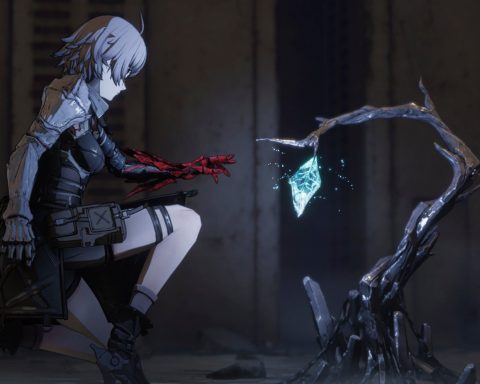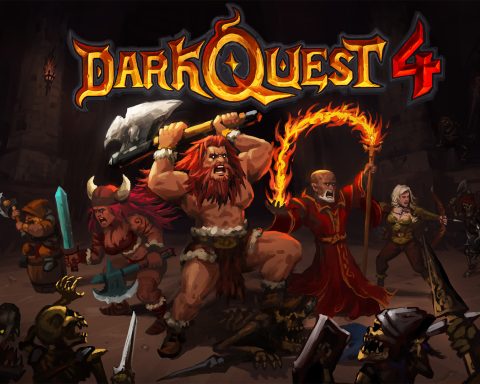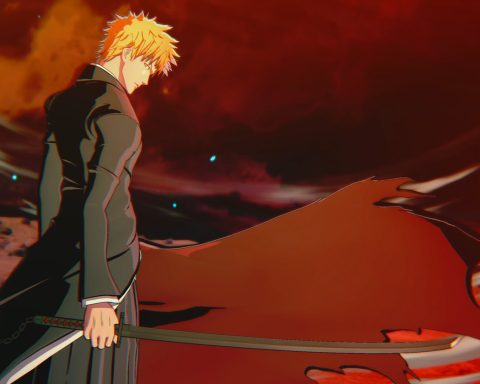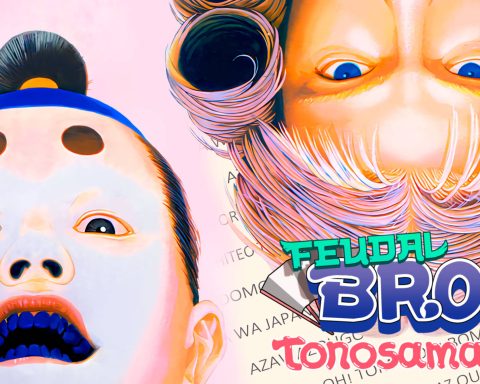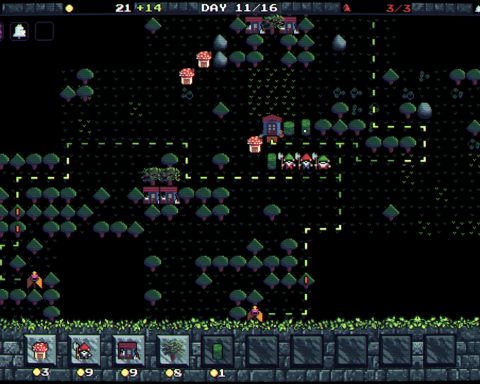Review by Matt S.
I do love my rhythm games. I also love my digital people – Hatsune Miku and IA and all the rest. Bringing together one of the best rhythm games in recent history (Groove Coaster) with my favourite digital people should have been a knock out of the park. Sadly Groove Coaster: Wai Wai Party isn’t without flaws, but nonetheless, I do love this game.
I’m going to start by talking about something I rarely do in my reviews, but it is particularly pertinent this time around: Wai Wai party is a very expensive game because a lot of the good stuff is locked behind DLC. If it was just additional songs, it would be one thing, but so much of what this game promised – your favourite vocaloid characters in the game, for example – is held in those DLC packs. From the base game you’ll get a fair few Hatsune Miku tracks, but getting the adorable representations of Miku is the additional DLC purchase. This isn’t really a complaint in the sense that the base game doesn’t feel incomplete, as such, but it’s worth noting up front that depending on the kind of mileage you’re looking to get out of this one, you could be looking at a significant investment above and beyond the base price.
Anyhow, whether you invest in the DLC or not, Wai Wai Party is delightfully good fun. I would imagine that most people who are fans of rhythm games have experienced some variation on Groove Coaster by now, but to summarise it simply: the rhythm is represented by a little icon that follows along a wire that moves across the screen as the music progresses. That icon is, by default, a Space Invader from Taito’s classic arcade series, but you can replace it with various pixel characters that you can unlock in one way or another. They don’t really change the gameplay though. As the character slides across the screen, a swarm of additional little icons appear on the wire, and whether it’s a press, press-and-hold, slide, or button mash, you need to do that action as your character slides across the icons. Those icons appear on the screen in time with the music, naturally, and that’s where the rhythm skills come in.
On the lower difficulty levels this process is fairly straightforward, but on the higher difficulty settings there are more icons, and more actions to do in time with the music. Additionally, the wire track starts to become visually deceptive, as the game encourages you to rely on your sense of rhythm rather than what you see on the screen. Like the very best rhythm games, Groove Coaster can be learned in minutes, but dealing with the higher difficulties is a long learning curve that will really challenge your rhythm.
Those higher difficulty settings is also where the real fun is, as you sit, transfixed in the TV, your fingers pulsing with the music and when there’s no time to think, but rather just act. A good rhythm game has a way of really immersing you without its soundscape, and Groove Coaster’s 8-bit aesthetics and simple designs really help it; just as the best arcade games demanded twitch response and precise co-ordination, so too does Groove Coaster. It’s a thing of beauty.
Groove Coaster boasts what can only be called an “eclectic” mix of music. There are tracks taken from Groove Coaster itself, of course, but the real fun is the video game, anime, and J-Pop music, and this track list includes songs that even the most casual fan will enjoy. Who doesn’t know Da Pump, for one example. Of course, I personally beelined straight to the vocaloid music, where there’s a lot from my favourite Crypton crew (Rin and Miku in particular), but there’s a good spread from less well known vocaloid personas too. With a “proper” Hatsune Miku game coming to Nintendo Switch next year, I’m glad that the developers broadened the voicaloid section beyond the obvious candidates, because those digital stars aren’t getting their own games
There is just one big issue with Groove Coaster’s treatment of some of these songs… for whatever reason, it’s not the full song that you’ll get to play. Other rhythm games do throw abridged versions of music at players too (Taiko the Drum in particular), but for whatever reason within Wai Wai Party those abrupt endings come across as more jarring. Music that just stops midway through can be frustrating, and while it’s always possible to abridge a piece of music so that it’s shorter, Wai Wai Party often feels like it is really just stopping part way through.
One final small irritation is the unlock system. This works a little like an expanding web – you’ll have four objectives when you start playing, but as you check those objectives off and earn the rewards you’ll then start to unlock a widening range of objectives. These range from completing a specific song, to getting a certain number of top scores on certain difficulties. The problem is that pulling up this objectives list requires that you exit back to the main menu each time, and those objectives are specific enough that if you don’t regularly go back to check, you’re just not going to unlock anything. On the plus side, if you do complete objectives that are hidden at the point that you achieve them, you will still be rewarded with the prizes once you have completed the previous ones down the chain, so when you get really lucky you can unlock three or four things at once.
There are plenty of ways to further tailor the experience to your own tastes, with items and multiplayer modes and the like. There’s also a challenge mode, where you can earn additional rewards by completing a collection of music tracks, one after another. These are all great little additions, and do add something to the overall “party” feel, but as with most rhythm games, I have never felt the need to engage with that stuff. For me a rhythm game experience should be simple. It should be a case of me testing my sense of rhythm and musicality against whatever the beatmap is… really, much like the challenge in playing music is ensuring that you’re hitting the notes at the right time with your instrument.
Groove Coaster: Wai Wai Party! wasn’t quite the celebration of digital celebrities that I had hoped it would be going in. What it is is an excellent rendition of one of the better rhythm games out there, and while it might be more straight-faced and less “party” than the title implies, it’s still hard to go wrong with this one.
Note: Groove Coaster: Wai Wai Party! is currently only available on the Japanese eShop. It is, however, fully localised into English, making it very import friendly.
– Matt S.
Editor-in-Chief
Find me on Twitter: @digitallydownld





